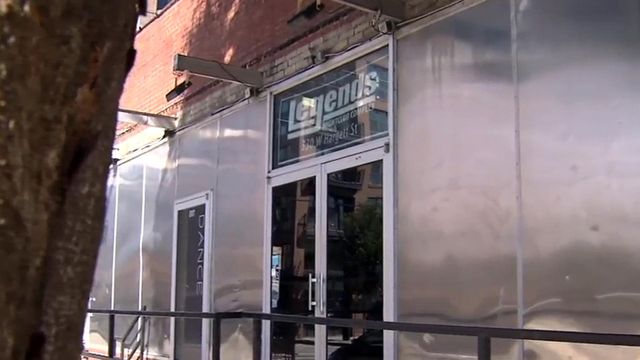Raleigh launches effort to identify, recognize historic sites for local LGBTQ community
A presidential birthplace, a church and even a pharmacy association are recognized by some of the more than 100 historical markers across Raleigh. But none of the markers designate a site important to LGBTQ history.
So, Raleigh officials are working with a historian to document and preserve the city's LGBTQ history.
"It’s a segment of the community that we don’t have a history about," said Tania Tully, senior preservation planner for the city. "Not only do we not have any designated historic properties related ot the LGBTQIA+ community, but we also didn’t have any context by which to evaluate any that came forward."
Raleigh's study, which was in the works before the pandemic, will identify potential sites that could be listed in the National Register of Historic Places.
"What’s really important is what happened in the place – whether it’s a house, a bookstore, a club – and to learn that we need to hear from people," Tully said.
Les Geller moved to Raleigh in the early 1990s – decades before LGBT rainbow murals were painted on the sidewalk or the sides of buildings.
"It was really a kind of hidden social network," Geller said of Raleigh's gay community at the time. "You probably wouldn’t even know it existed."
He helped found the LGBT Center of Raleigh in a small office in the warehouse district west of downtown. Several LGBT bars and shops were nearby back then, but Legends nightclub is one of the few that remain today. What used to be Capitol Corral, for example, is now a wine bar.
"In those days, the gay bars were far more important to the community because it was really one of the only places where you could openly go and socialize," Geller said.
Trey Roberts, one of the founders of Raleigh Pride, said the warehouse district, was once known as "the gayborhood."
"It still is home to a lot of local LGBT-owned businesses," Roberts said. "I think it’s important, as [Raleigh] continues to change, that everyone who’s coming here and everything that comes here now is reminded of what was here before."
Raleigh has hired a historian to research such sites and interview people like Geller, who is sharing his memories of those bygone days and destinations in hopes the history of the LGBT community in Raleigh isn't lost.
"One of the things we are hoping to do with the survey is not just reach the LGBTQIA people who are living in Raleigh now, but hopefully reach people who have perhaps moved away," Tully said.
A final study with recommendations of properties to put on the National Register of Historic Places should be finished by the spring.
"All of these are big steps to becoming a major mainstream part of the city," Geller said. "We always have been, but people were not aware of it. I think it’s about time they became aware of it."












